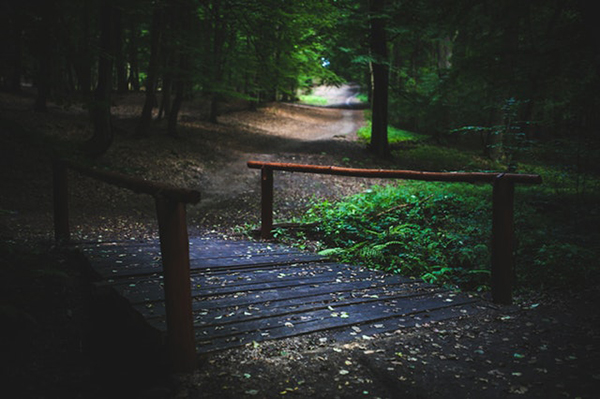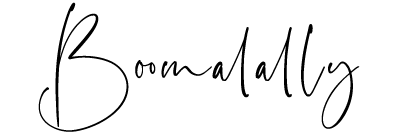
When Faced with Death, Choose Life
Are you ready to live when others say you are too ill? Me, too. However, first we have something important to discuss. The power of choice. Perhaps, it would be better to say, our choices affect our future, and the choices can be difficult. What about you? What is one of the most difficult choices you could make to begin a journey toward feeling better and walking away from disease? Perhaps you don’t believe in unscientifically based solutions. Maybe you are a vegan and you never eat vegetables, ever. Perchance you believe you read too slowly and you don’t want to do research. Which of these limiting beliefs will keep you from moving forward toward healing?
In order to heal yourself, there’s a path you must walk. That path is YOURS alone–your choices, your changes, your internal knowledge, your experiences. Unfortunately, we have been taught to follow others’ opinions and guidance. In order to heal yourself, your opinion is the lifesaver and will show you which doors to walk through. Trust in the power of healing—it can save your life.

Photo Credit: Pixabay
In my own case, I did not want to accept personal responsibility, at least at first. I kept saying, if I could just find someone to tell me exactly what to do, I would do it. But that situation was not to be because no one else had all the (my) answers, and no one ever will. I had to choose me, my opinions, and my decisions over those of anyone and anything else, including my doctors and other medical consults. I had to choose MY life first, before my husband’s, before my brain injured son’s, before everything that was so precious to me in this life. I had to choose to live no matter what, and I had to live full out. These are just a few of the decisions that are necessary to get clear about your path.
Let’s pause for a moment and give you some background about my story. I had been taking care of my brain injured son at home for 13 years. To say the least, I was spent. From early morning until late evening, he would summon me by moaning or hitting the wall with his foot. He hasn’t had use of his arms or hands since the accident when he was 17. He was wet, he was hungry, he was happy and wanted to talk, he was sad and wanted to cry.
Caring for a brain-injured person is 24/7 work, and if you are lucky, you get four hours of sleep at a time. To sleep seven hours is close to a miracle. Throughout the day, he had to be washed, fed, changed, “spelled out to” (we went through the alphabet line by line, one letter at a time, in order to communicate), and if he agreed, driven to therapy.
Yes, I did have help from caregivers, and they did show up 75% of the time, thankfully. But along with all the physical labor (my son is more than six feet tall), the emotional toll was overwhelming. Every single morning, my husband and I awoke knowing that we would be facing another full day. There was no break for us unless my son went off to a special respite home for a weekend. When that happened, my husband and I spent most of those weekends in bed. He kept up his practice as a psychologist for the first few years, just barely. Over time, it became too difficult for him to hear complaints about spouses who cheat or children who talk back when we were living with a child who could no longer talk at all.
The point is, over and above the physical toll, the mental and emotional toll was massive. I truly asked to be set free from this trauma and this life because I could no longer do it. When I received my own the terminal diagnosis, I said to myself, well, you got what you wished for. Congratulations. You’re out of here. Three to six months. Cool. I’m done.
Ironically, having received a terminal diagnosis of my own, my son then earned enough “points” in the government system to be placed in a group home. He could live elsewhere. What an unexpected doorway. I had to ask myself, if he goes away to live, do I want my life back? Do I seriously want to die? The answer was clear. No, I did not want to die. I wanted to stay here, stay with my husband, and stay in this life. I felt strongly that if I chose to live, I would do just that. And so, it was. I was ready to stay and ready to heal. I just had to figure out how.

Photo Credit: Pixabay
For some of us, life and death decisions are not so easy. Some people do not even know they want “out.” They think that life is “not all that bad,” but suffer for years in a bad situation and believe they have no choices. It takes a little work and, perhaps, a little therapy to come to an understanding regarding whether they want to live or die. Terminal and chronic conditions exist, but the question is, do they have to? Can we walk away from such diagnoses? Just by the choices we make? Can we change our minds? Can we change our bodies? I believe we can, and I am living proof. There are many others who agree. But the first question is, do you truly want to live?
The answer to this question is not as simple as it seems. It presents a challenge when someone pronounces us to be “terminal.” Are we willing to buck that system? Because doing so will likely create a situation whose magnitude is far beyond that to which we may be unaccustomed. Pushing back against a terminal diagnosis can be overwhelming (you don’t feel “terminal”) and surprising at every turn. And the first commitment is the hardest: the commitment to oneself above all others. We are built–and we often live–for others. Another lover, another child, another friend, another group of friends, another cause.
Living for others is not enough– not until we are ready to face the cold, hard facts. The focus must be on one solitary goal: living and healing no matter what. Once we are ready to face that reality, choices emerge and paths appear that were previously unavailable. I am uncertain about how or why healing works that way, but it does. Once we make the choice to live, absolutely and definitely doors open and the path supports us.
Trust me when I say, you cannot serve two masters. You will be asked repeatedly to choose between living and giving yourself to someone or something else. Prepare yourself for these challenges. They won’t be easy unless you are clear about your goal: staying alive. Will you bend to make others happy when they are so in need of you? Or will you draw the line, take care of yourself first, and choose what feels right for you, despite being called a bad wife, poor mother, etc.?
There are other choices too.

Photo Credit: Ella Olsson
For instance, if you are a vegan and you find that Paleo is the way to go for food, you may have to give up your beliefs. If you love carbs or crave sugar, you literally may have to walk away from the food you love so that your body can recover. If you dislike vegetables and avoid eating them, you may have to go full steam ahead into vegetarianism–drinking beet juice or carrot juice every day to see yourself heal in body, mind and spirit. You can continue to die slowly as a function of your choices, or you can heal rather quickly as you move forward into a life of health and well-being. These are our choices.
Spouses, children, families, and other groups will demand your time and energy. In some small ways, you can give them what they ask. However, the only way for you to truly feel better is to Center Yourself, Experiment, Experience, Assess, Repeat. (CEEAR). If you try juicing, Paleo or eliminating sugar, you will need all your faculties to determine if the experiment is working. Extreme focus and close attention will get you there. Keeping track of your supplements, your food intake, your body’s outputs, your pain, your strength– they all matter. Before long, you will gain a wealth of knowledge about your own body, and you will be clear about what is good and bad for you as well as how your body reacts to your choices.
If you journal about your journey, you will learn even more. Your attention needs to be on what’s working rather than on what is not. Go towards what is working, what feels good, what results are definite, and repeat. Such work is amazing and can produce inconceivable results. No longer will you discount the opinions of those who have healed. You will become one of them, and you will feel normal saying aloud, “I am not dying.”

Photo Credit: Sindre Strom
So, the usual order of things will go like this: trust that we can choose ourselves over anything else. Look at what is really happening with our bodies and our minds. Walk away from what is not working. Walk towards healing foods, ideas, people, and experiences. Journal the journey. Notice interesting and wonderful gifts as we go. Look back and see how far we have come. Keep going, learning, expanding into health, and celebrating life.
Never be far away from gratitude as we walk this path. Be thankful for all that is and has happened, starting with every single cell in the body. Every night talk to the body about all it is giving us, how hard it is working, how much it has done to keep us going all this time. Truly, we are a part of a miracle, and that process will continue every single moment as we walk toward greater health, first for ourselves, and then, yes, once we are well, for others.
Then, when we give to others, we will do so in a controlled way. We will understand our boundaries, what is good for us, what is bad for us. We will choose wisely because our own knowledge will guide us over and over each day. With this newfound knowledge we will be able to help others. But first, heal just one.
